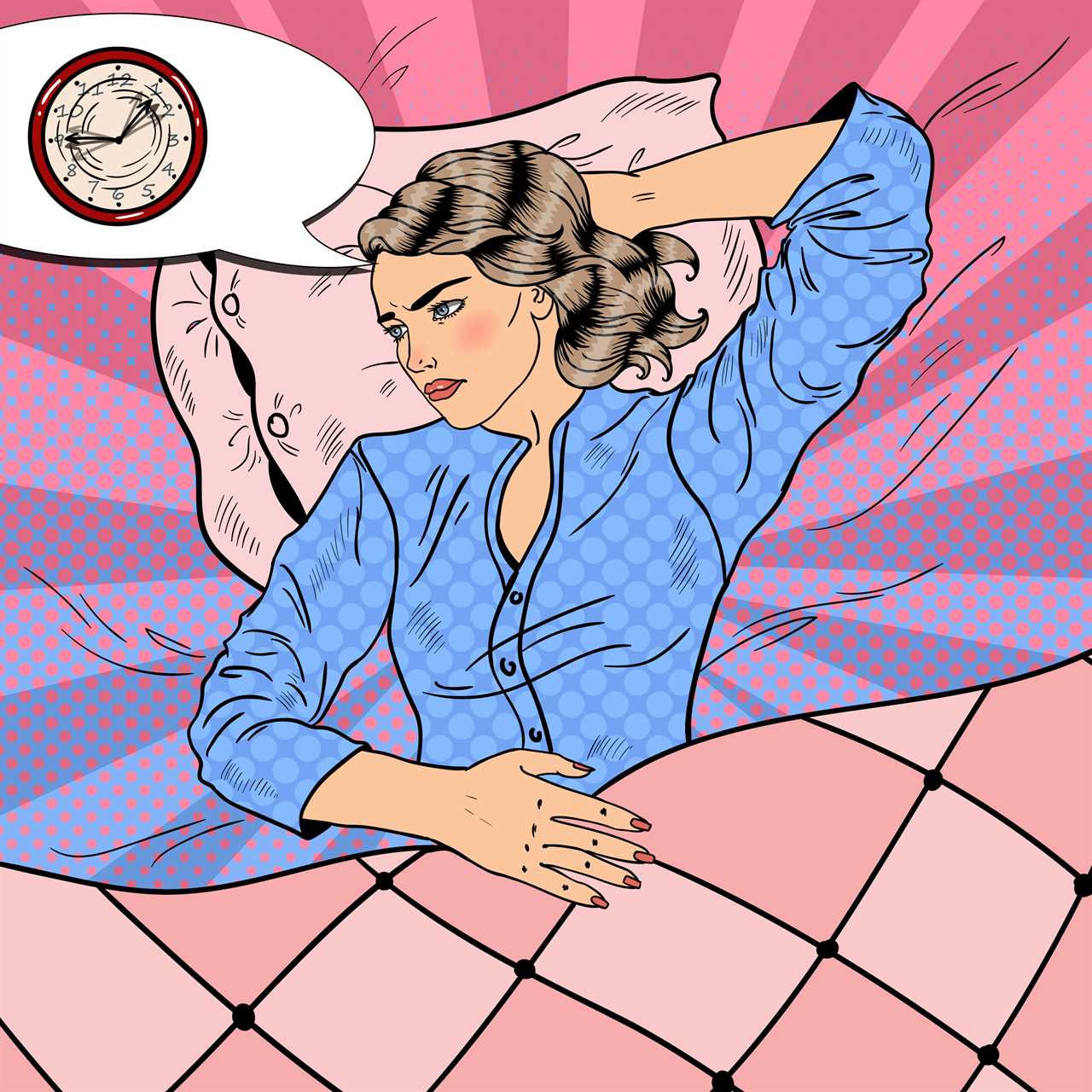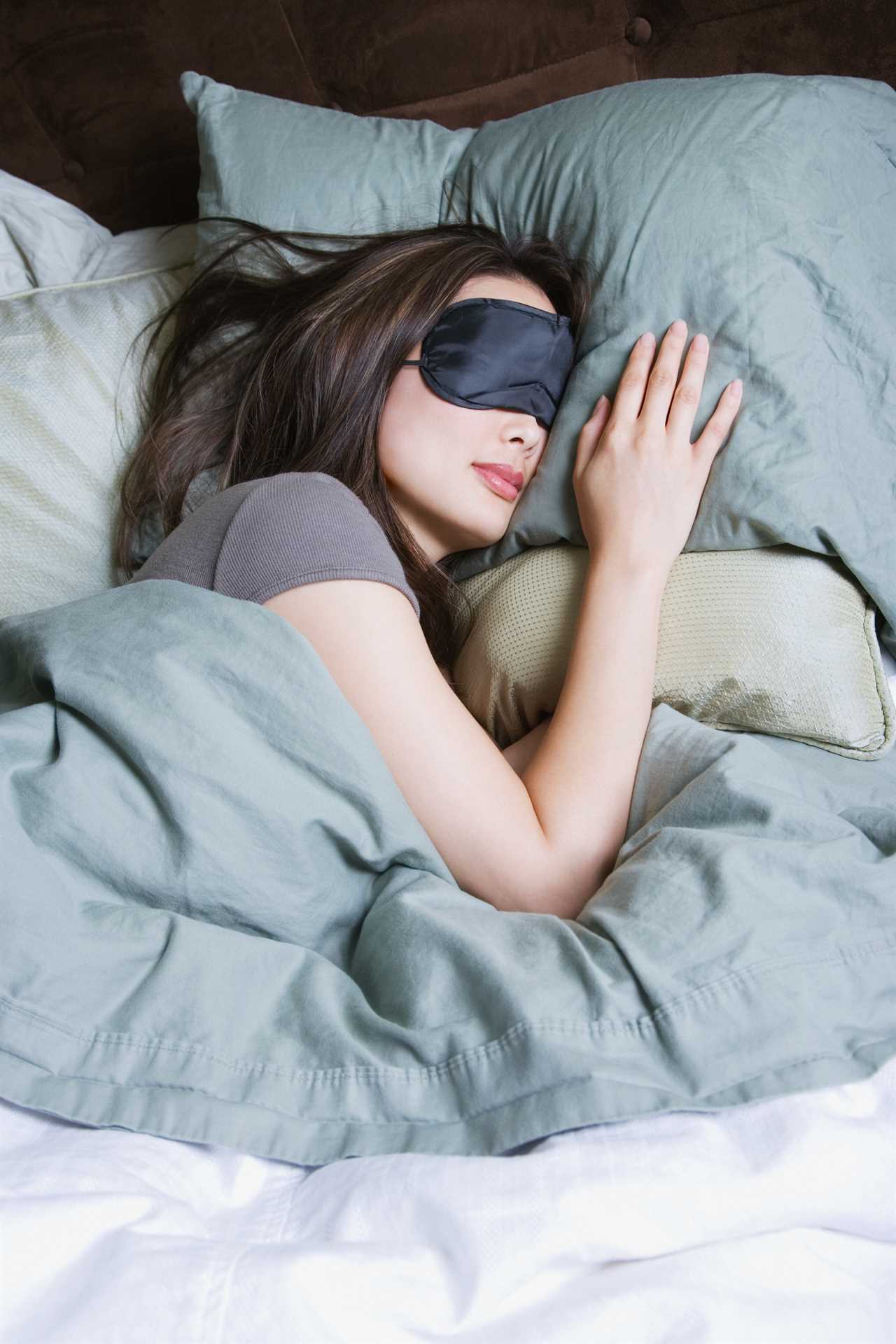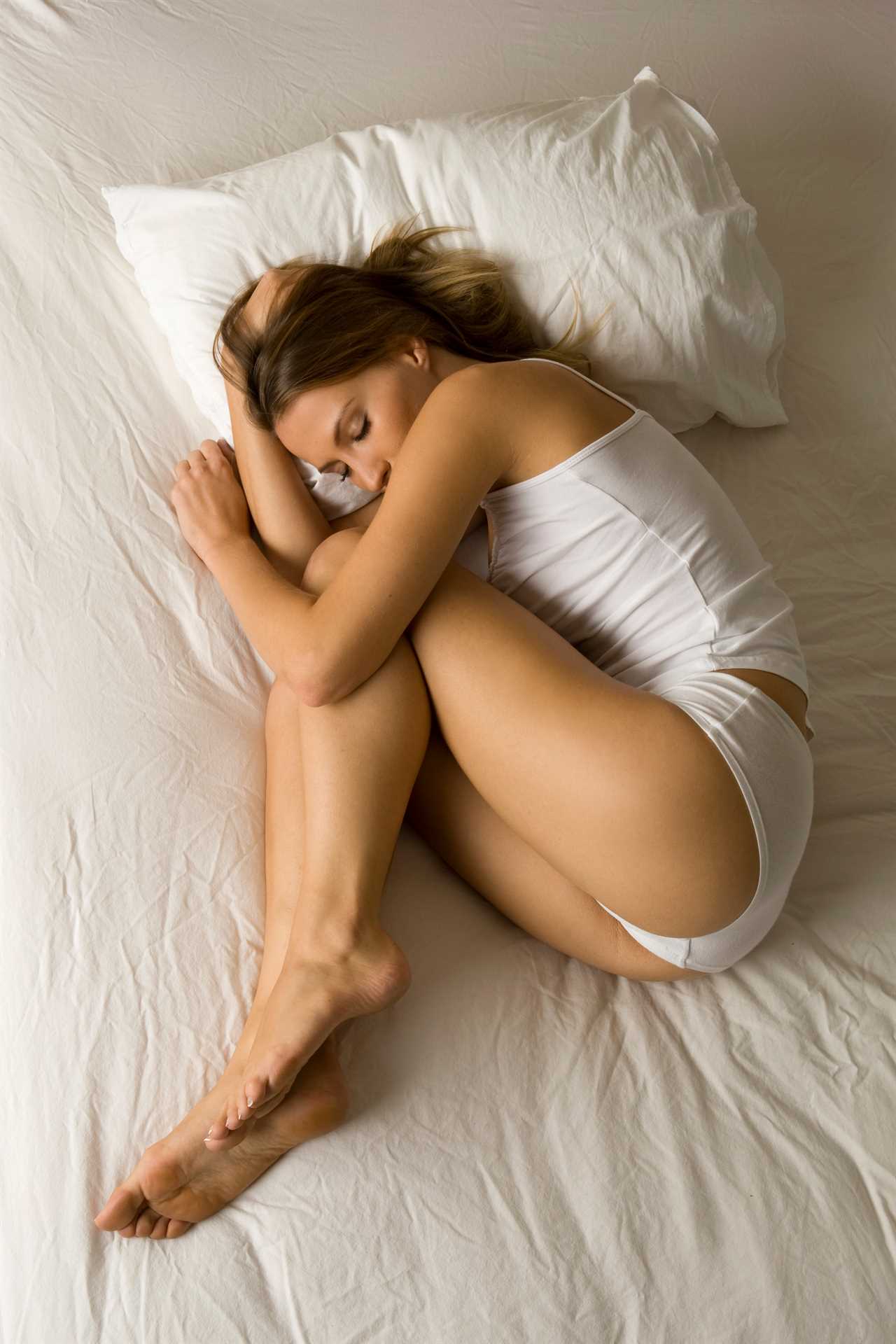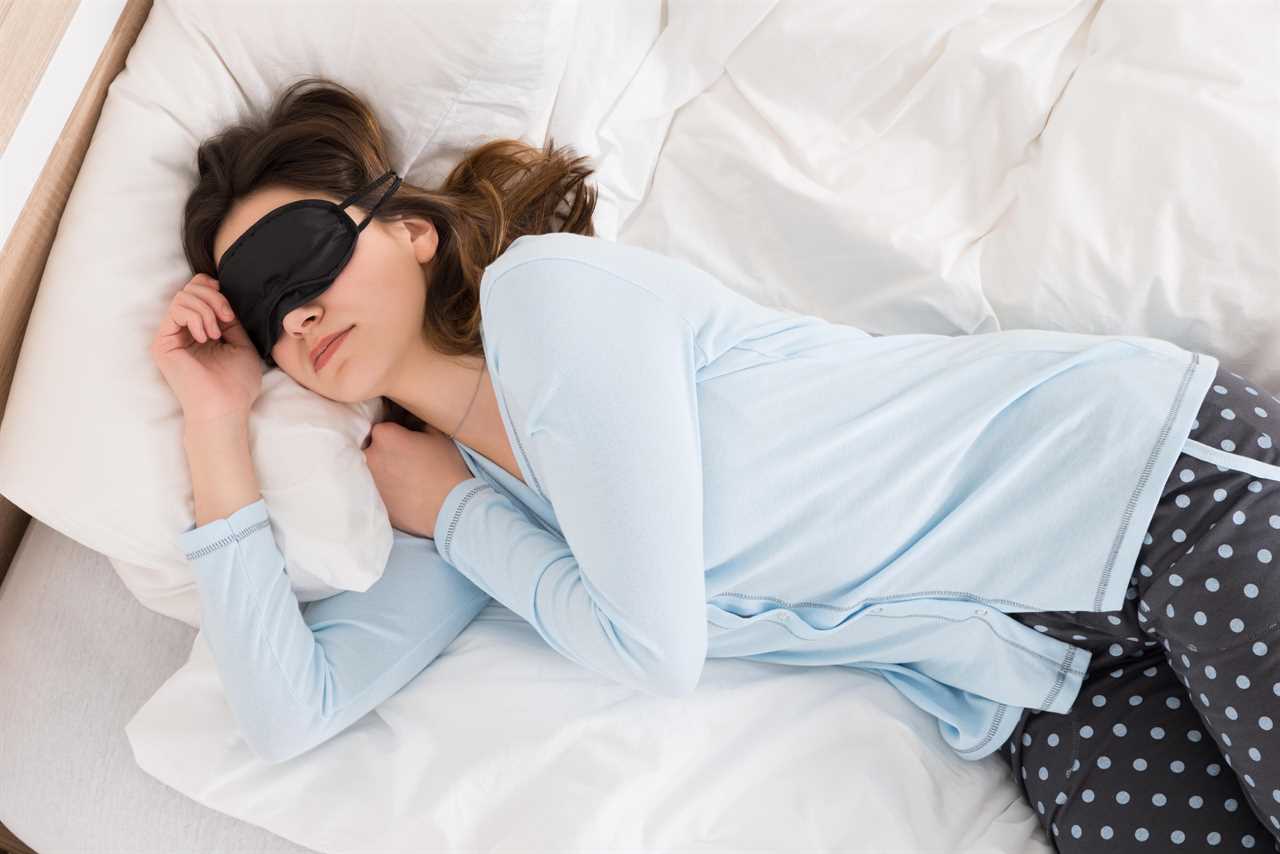HAVE you been struggling to sleep recently, or waking up early and feeling exhausted during the day? You could be suffering from coronasomnia.
Experts have coined the term, also known as “Covidsomnia”, to describe the huge disruption to sleeping patterns caused by the pandemic.

One in four of us are now suffering from insomnia, according to a study last year by Southampton University.
Meanwhile, a survey by The Sleep School revealed half of us are struggling to get shut-eye because of the pandemic, and “insomnia” was Googled more than ever before in 2020.
Sleep psychologist Dr Guy Meadows, who co-founded The Sleep School, says: “Coronasomnia is a phrase used to define the collection of sleep disturbances that are happening because of the pandemic.
“It’s not just difficulty sleeping at night, but excessive daytime tiredness too.
“Classic signs include three nights or more of poor sleep a week, taking 30 minutes or longer to drift off, or trouble getting back to sleep in the middle of the night — fuelled by increased health anxiety, as well as money and relationship stresses.
“We are creatures of habit and like to be in control, so a sudden loss of routine, eating later and going to bed later, plus a lack of exercise, are all having an impact.
“We are also spending more time indoors and missing out on valuable daylight which is one of the biggest factors affecting the sleep-wake cycle.”
Think you could be suffering from Covidsomnia? Then take our quiz and read Dr Meadows’ advice.
TURN RESTLESS NIGHTS INTO SWEET DREAMS
MOST adults need six to nine hours’ sleep a night, the NHS says. Anything less can affect your mood as well as your mental and physical health. It can impact your sex drive, fertility, weight and immunity too.
Sleep expert Jeff Spires, who works with resultswellnesslifestyle.com, reveals what to do to get the perfect night’s sleep.

HAVE SEX AT 11.10pm: This is the average time we go to sleep. Having sex at bedtime should help you drift off. Oxytocin, the “love hormone”, has a calming effect on the body. When released in large quantities, such as during and after sex, it leaves you feeling calm and peaceful. Sex also helps raise your body temperature and clears the mind – both great sleep-inducing qualities.
PAINT YOUR BEDROOM BLUE: Dark blues are associated with nature, water and stillness. Our brain sends signals to relax when around that colour. It is thought dark blue is seen as a reflection of the night sky and can induce the release of the sleep-inducing hormone melatonin.
FENG SHUI YOUR BOUDOIR: Position your bed so you have a clear view of the door. Being able to see anything that might enter that space can subconsciously make you feel more relaxed and help you sleep. To associate your bedroom with calmness and sleep, start by removing technology. If you must have tech in the room, try to store it away from sight.

DIM THE LIGHTS: The hormone melatonin is produced by your brain’s pineal gland and is largely responsible for helping you sleep. Exposure to sunlight for at least an hour during the day increases the strength of your melatonin release and helps you sleep better at night. Come evening, swap lights for lamps or use dimmer switches, as this will alert the brain that bedtime is looming. Have an evening bath, listen to relaxing music, light scented candles. “Me time” will release melatonin and help you sleep more deeply.
SLEEP LIKE A BABY: The preferred sleeping position among experts is the foetal position, curled on your side with your legs either staggered or stacked on top of one another. This helps your spine rest in a natural alignment, meaning you are less likely to wake up needing to move. Studies have also found the brain is better at clearing out waste toxins and proteins when lying on your side.
SLEEP AT 18.3 DEGREES: Studies found a room temperature of around 18.3C is optimal for good sleep. This is because over a 24-hour period, your circadian rhythm (the sleep/wake cycle) alters your body temperature. Your body begins to cool down when preparing for sleep and continues to do so until reaching its lowest point at around 5am. If your bedroom is too hot or too cold, it can offset this rhythm and disrupt sleep.

BLOCK OUT LIGHT: If you don’t have blackout blinds or thick curtains in your bedroom, buy an eye mask. Darkness helps promote the release of melatonin and keeps it in your system during the night. Light, including blue light from devices, stops the effects of melatonin. Blue-light glasses let you use your technology without your eyes absorbing the blue light. But still put down your mobile at least an hour before bed.
EXERCISE IN THE MORNING: If you wake up and move your body with a cardio exercise, it will promote the release of hormones that wake you up and make you feel good – norepinephrine, dopamine and serotonin. Avoid working out late in the evening as your body will be pumped full of hormones designed to keep you awake.
DITCH LIE-INS: We all have a natural biological clock, the circadian rhythm. To increase its strength, stick to a set routine so the brain receives signals that it is day or night. The circadian rhythm does not know it is the weekend, so increasing your lie-in time can muck up your sleep schedule for days.

‘I’m longing for sleep’
JOANNA Oliver, 37, has started having panic attacks because she is unable to sleep due to the pandemic.
Joanna, who lives in Kings Hill, Kent, with husband Rick, 36, a designer, says: “Before Covid, I managed to get around eight hours’ sleep a night but now I am getting about five.

“I worry that either myself or a loved one will catch Covid.
“I’ve had to stop listening to the daily death count because it madkes me more anxious when I try to sleep.
“I lie awake in the early hours stressing about everything that could happen.
“I have started having panic attacks in the night because I’m so overtired.
“I panic about not sleeping and feeling exhausted the next day which only increases my anxiety. It is a vicious circle.
“I long for the days when I used to get into bed and fall asleep instantly.”
TAKE OUR QUIZ
- ON average, how often do you go to bed worrying about the pandemic?
a) Never
b) Twice a week
c) Almost every night
d) Every night - HOW does your sleep now compare to before Covid?
a) Just as good
b) I have the odd poor night
c) More disturbed than before
d) It’s much worse than before - WHEN you go to bed what goes through your mind?
a) Nothing, I fall asleep as soon as my head hits the pillow
b) Work, relationships, family or money stresses
c) I replay the news in my head and wonder if this will ever end
d) I fear something bad will happen to me or a loved one - IF you wake up in the night, how long does it take to get back to sleep?
a) I never wake in the night
b) A couple of minutes
c) At least half an hour
d) I can’t get back to sleep - OVER the past seven days, how many nights have you managed to sleep solidly?
a) Every night
b) Almost every night
c) 2-3 nights
d) None - HOW do you feel after a night’s sleep?
a) Full of energy, raring to go
b) A bit groggy at first but refreshed
c) Getting out of bed is a real struggle
d) Like a zombie - HOW hard do you find it to stay awake in the day?
a) I am always wide awake
b) I sometimes get sleepy in the afternoons
c) I have an afternoon nap most days
d) I have to fight to stay awake and am fuelled by caffeine - WHAT time do you usually go to sleep?
a) Between 10pm and 11pm
b) Between 11pm and midnight
c) The early hours
d) Often, I don’t drift off until 6 or 7am - HOW would you describe your mood most days?
a) As positive as possible
b) A little bit anxious
c) Snappy and irritable
d) Very low - COMPARED to before the pandemic, how are you performing your usual daily activities?
a) Exactly the same as before
b) I’ve made a few errors
c) I’m struggling to concentrate and am forgetful
d) I’m making a lot of mistakes and struggling to think clearly
WHAT YOUR SCORE MEANS
MOSTLY As – Excellent. It sounds like you are sleeping soundly. Keep up the good work.
MOSTLY Bs – You might be worrying more because of the pandemic. Rather than watching the news or scrolling through websites in the evening, get your fix earlier in the day.
Similarly, if you are concerned about money, relationships or family, try to put your worries aside for a couple of hours before bed. The Sleep School offers a free seven-day trial of its app, which could help relax you and clear your mind.
MOSTLY Cs – You stay up late and struggle to sleep, which could be making you lethargic, irritable, or both, in the daytime. Take the advice for “Mostly Bs” above and also try hard to establish a sleep routine. Get into bed at the same time each night and set your alarm for the same time every morning, INCLUDING weekends.
If you wake up in the middle of the night, gently “scan” your body from head to toe, noticing where it makes contact with the bed, such as your head on the pillow. Each time your mind wanders, gently return your thoughts to body and bed.
MOSTLY Ds – You feel exhausted all the time, which makes functioning in the day a challenge. If Covid worries keep you awake, talk them through with your partner or a friend before bed to clear your mind. Don’t put yourself under pressure to sleep and if you wake up in the night, stay in bed.
Resting might not be as good as sleep but you will be conserving your energy for the next day. Have a go at labelling your thoughts. Say: “I’m noticing my mind telling me ‘health’ worries right now.” This can create space between you and your thoughts, helping you relax.






